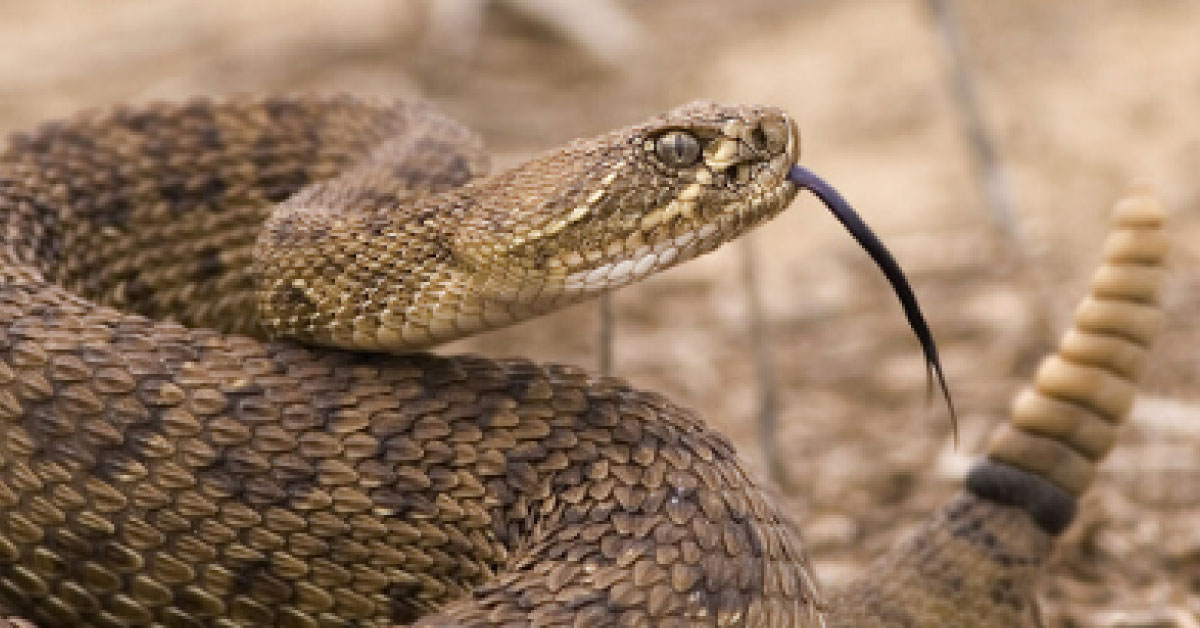
Venomous snakes of Texas include the rattlesnake, among others.
Reports of snake bites are on the increase in Texas. Texas Poison Centers have seen a more than 40 percent increase in snake bite calls this year over last year. To date, there have been 372 in 2020.
“All snakes will bite when threatened or surprised, but most will usually avoid an encounter if possible and only bite as a last resort,” Jeanie Jaramillo-Stametz, Pharm.D., director of the Texas Panhandle Poison Center (TPPC) said. “Snakes found in or near water are frequently mistaken as being poisonous. Most snakes are harmless and many bites will not be life-threatening, but unless you are absolutely sure that you know the species, treat it seriously.”
Venomous snakes of Texas include the copperhead snake, water moccasin or cottonmouth, coral snake and rattlesnake.
The Texas Panhandle Poison Center recommends that people follow these guidelines to prevent snake bites:
- Avoid places where snakes my live, including tall grass or brush, rocky areas, fallen logs, bluffs, swamps marshes, leaves and deep holes the ground.
- Watch where you step and where you sit when outdoors.
- Never handle a snake, even if you think it is dead. Recently killed snakes may still bite by reflex. If you are planning to spend time in a snake-prone area, it’s best not to go alone in case you are bitten by a snake or have another emergency. If you must go alone, make sure you bring a fully-charged mobile phone and stay wherever your phone gets a signal.
- When moving through tall grass or weeds, poke at the ground in front of you with a long stick to scare away snakes.
- Shine a flashlight on your path when walking outside at night.
- Wear long pants and sturdy closed-toe shoes when spending time outdoors.
If you are bitten by a snake, TPCC advises you do the following:
- Call Poison Help at 1-800-222-1222. If the person who was bitten is having trouble breathing or losing consciousness, call 911 immediately.
- Keep still and calm.
- Remove all jewelry and tight clothing.
- Note the time the bite happened. Try to remember the color and shape of the snake but don’t move closer to it. Only take a photograph of the snake if you can do it from a safe distance.
- Keep the part of your body that was bitten straight and at heart-level unless told otherwise by the specialist at the Poison Center.
- Wash the bite with soap and water and cover the bite with a clean, dry dressing, if
available, and if doing so does not cause delay.
Always call the Texas Panhandle Poison Center if someone may have swallowed, touched, or breathed a harmful substance. A trained health care provider will tell you exactly what to do. Have a question? Non-emergency calls are always welcome too. Calls are free and confidential.
1-800-222-1222. Day or night.
